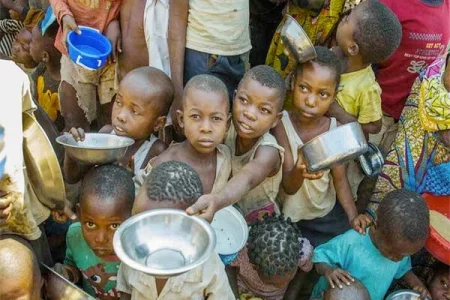
Over 129 million Nigerians are now living in poverty, according to a World Bank report. Soaring inflation, economic mismanagement, and external shocks have pushed millions into poverty since 2018, with rising food prices and low job productivity worsening the crisis. Urban poverty has also surged significantly.
As inflation continues to rise, the World Bank has reported that 129 million Nigerians are now living in poverty. This marks a significant increase from previous years, with economic mismanagement, inflation, and external shocks driving poverty levels to new heights.
The Nigeria Development Update report released in Abuja highlighted that the country's inflation rate has drastically affected purchasing power, driving millions into poverty. Since 2018, the percentage of Nigerians living below the poverty line has surged from 40.1% to 56% in 2024. The sharp increase is attributed to multiple factors, including the removal of fuel subsidies, which led to higher transportation costs, the devaluation of the naira, and disruptions in food production due to floods and insecurity.
The World Bank also noted that inflation has soared by over 45% under President Bola Ahmed Tinubu’s administration, which implemented economic reforms aimed at stabilizing the country's fiscal deficit. Despite these reforms, many Nigerians are struggling to afford necessities as food prices continue to rise and economic growth fails to outpace inflation.
Urban poverty has seen a notable rise, with over 31.3% of city dwellers now living in poverty, compared to 18% in 2018. The World Bank stressed that job creation remains essential for lifting people out of poverty, but current employment trends are not sufficient to alleviate the crisis. Many of the jobs created are low-wage, unproductive positions that do not offer a sustainable escape from poverty.
With 14 million additional Nigerians falling into poverty this year alone, the World Bank urged Nigeria to continue economic reforms, warning that reversing them could spell disaster for the nation. Despite the growing hardship, the Nigerian government is expanding cash transfer programs to help economically vulnerable households weather the storm. The World Bank remains committed to supporting Nigeria through loans and technical assistance to implement reforms.
In summary, while reforms are ongoing, millions of Nigerians are grappling with the harsh realities of inflation, rising costs, and dwindling purchasing power, making it harder for families to escape the cycle of poverty.




